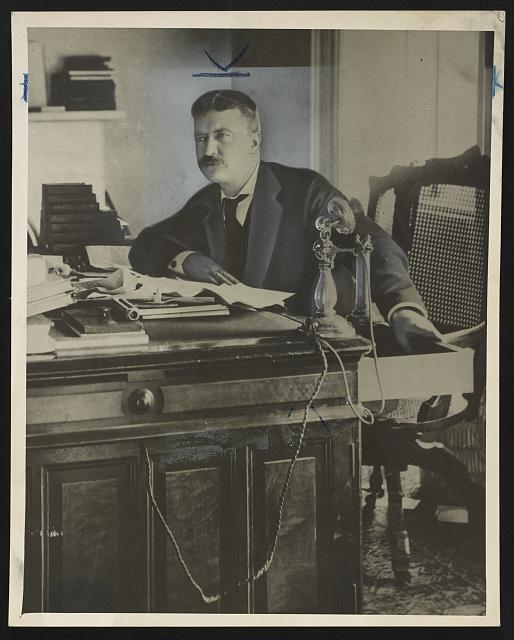
If the police power is used oppressively, or improperly, let us by all means put a stop to the practice and punish those responsible for it; but let us remember that a brute will be just as much of a brute whether he is inefficient or efficient. Either abolish the police, or keep them at the highest point of efficiency.
The Works of Theodore Roosevelt (1917.) Scribner’s Mem. Ed. XXI, pg.73; Nat. Ed. XIX, pg. 63
After the guilty verdict in the Derek Chauvin case, I am republishing this article from 2020 on how Theodore Roosevelt might have approached the modern policing crisis. Unfortunately, the lessons still ring true even after a year.
In the wake of the killing of George Floyd, this blunt observation of Theodore Roosevelt is particularly timely and provocative. As police commissioner of New York City, TR knew the difficulty of preserving the legitimacy of a police force in an ethnically diverse city. Police corruption, whether in the form of bribery or brutishness, sapped that legitimacy and needed to be swiftly and certainly punished. He also knew that such corruption often arose from systemic failures in society that were foisted on the average police officer to solve. Whether the slogan is Roosevelt’s or today’s “defund the police” chant, any sustainable police reform movement must address these past policy failures.
The Militarization of Police Departments
After the 9/11 attacks, the federal government decided that every metropolitan police department needed to be prepared to deal with a terrorist attack. This ended a successful era of neighborhood policing based on increasing the number of police officers walking a beat or otherwise regularly connecting with city residents. Instead, cities stocked up on military-style equipment, which had the effect of separating the police from the public and glorified the use of force over early intervention. Hollywood then further glorified it through television shows like “SWAT” and a host of police buddy movies. This resulted in a culture that ruled by fear instead of respect. It is past time to reverse course and reinvent the policeman as a community problem solver and give him or her the necessary support and resources. To do so, though, we must face another reality.
The Reduction in City Police Forces
The calls to abolish or reduce police forces are gratingly ironic in light of Bureau of Justice Statistics showing that two-thirds of the 50 major police departments reduced the number of officers per capita over the last two decades. Smaller police forces were cheaper because of the lower personnel cost, as opposed to riot gear and other equipment that do not demand employee benefits. We cannot implement neighborhood policing without more policeman, which requires more funding, and soon.
It is equally ironic that the relevant model may be the “surge” in military force that temporarily pacified Afghanistan and Iraq. The federal government should fund a similar surge in the number of city police over the next ten years subject to strict rules to insure it results in more and better-trained officers on the beat. Cities would then be expected to pick up the funding for this increase afterwards. Accepting the higher federal and local taxes necessary to achieve this more humane and sustainable form of policing would be the most concrete way to show our commitment to remedying past police abuse of poor minority communities. However, even this change will be insufficient if we neglect another crisis in law enforcement.
The Expansion of Criminal Law
Roosevelt’s police force was plagued by bribery caused by the attempt to enforce Sunday blue laws that were deeply unpopular among poor immigrants and which he personally opposed. Today’s police officers are asked to not only keep order, but also enforce a myriad of new financial and economic rules. George Floyd was being arrested on suspicion of passing a counterfeit $20 bill, which is a federal, not local, crime. Eric Garner of New York died while being arrested for failing to pay the state cigarette tax. If the police become identified with laws that have little legitimacy in their communities, they will inevitably face resistance and a lack of cooperation in enforcing other laws. Many cities already refuse to assist in enforcing the federal immigration laws in order to encourage illegal immigrants to cooperate with police in preventing violent crime.
The accretion of federal, state and local criminal laws over the years has placed all of law enforcement in an increasingly untenable position. All levels of government should conduct a thorough review of their criminal codes with the goal of either repealing minor criminal statutes, converting them to civil violations or developing new enforcement methods. Local police could then return to enforcing laws that preserve neighborhoods rather than disrupt them.
Conclusion
For most of this year, our nation has been concentrating on breathing freely by avoiding the coronavirus. Both the yearning to reopen and the George Floyd protests show that breathing freely is not enough for Americans. We must also be able to breathe free. Resisting arrest is never excusable, but resistance will occur more frequently if Americans believe they are not free. Blaming the police without examining the policy failures that affect all of us regardless of color will only sow the seeds of more resistance and a less efficient police force.

